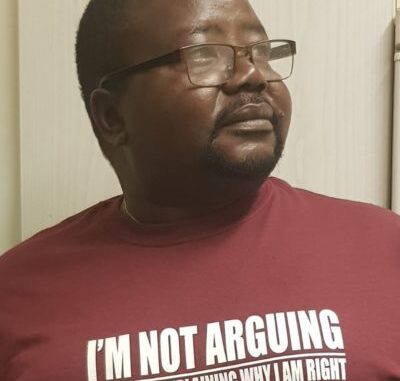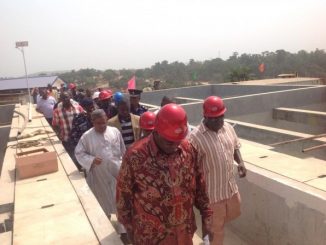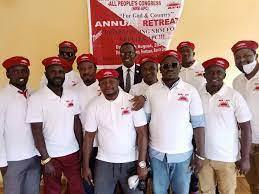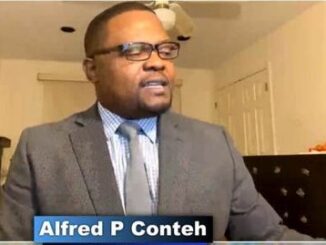
In a recent announcement, President Bio declared in a tweet that “Another promise made and delivered! My government has just approved and authorised the Attorney General to lay in parliament a proposed amendment to the constitution of Sierra Leone that will allow dual citizens to be qualified to be elected as Members of Parliament” (Sierraleonetelegraph.com-27th October 2021). To all intents and purposes, you cannot overlook the remarkable efforts from various sectors including “rights” groups and especially Dr Yumkella of the NGC Party.
It comes as no surprise that Dr Yumkella championed with passion and dedication, the bill to allow Sierra Leoneans in the Diaspora to run for political positions in the country. After all, he was the subject of what many saw as a calculated effort by the erstwhile APC government to stop him from contesting the 2018 elections: thanks to his alleged dual citizenship at the time.
Dr Yumkella presented his proposal under the “Inclusive and Equitable Governance Bill”, which finally reached the Attorney General’s desk last month.
The contributions of Sierra Leoneans living in the diaspora to the country cannot be overemphasised. Notwithstanding the contribution to the nation’s GDP, the impacts are well documented.
Every major political party in our country has a branch or chapter in the diaspora. They organise fund raising events and personal contributions to support their parent parties through the election cycles. With the wealth of experience and knowledge gained, many would like to give back to their community and play more active roles in the political sphere. They want to stop being political bridesmaids. The bill aims to dismantle the hurdles that have prevented them to doing so, due to dual citizenships.
But what is citizenship?
Any attempt to define citizenship will generate several interpretations, depending on one’s perception. Barack Obama once said, “Citizenships means standing up for everyone’s right to vote”.
Citizenship consists of service to a country, and the test of a good citizenship is loyalty to a country. In simple terms, citizenship is a sense of belonging to a community, for which one bears responsibility. It is a matter of public spiritedness. However, we cannot reinforce our sense of citizenship without strengthening our identity.
Some people’s idea of good citizenship is only defined by place of birth. In fact, the concept of good citizenship involves issues such as voting in elections, obeying rules and laws, being responsible for our actions and how they can affect others, helping others etc. If this is anything to go by, then no one is born a good citizen. Good citizenship must be cultivated and inculcated; and not just determined by one’s place of birth. Enough of the civics lesson.
If “diasporans” are technically going to compete for political positions, how do we ensure that in the interest of fairness, the playing field is level; for all. Political activities and especially election campaigns universally cost money. This is not to imply that “diasporans” are richer but is there a risk that “Diasporans” may benefit from unequal resources over their counterparts?
Before you get the champagne flutes, let’s try not to confuse patriotism with citizenship. They are just two sides of the same coin. There is no harm in toasting the desire to widen the political tent, as part of the drive for inclusivity.
At last, our country is ready to recognise that citizenship is not only defined by post or zip code. It sounds like a step in the right direction. It took a while to get here but Kudos to all those who worked so hard to bring this to fruition, especially those overseeing the political gridlocks that once stood in the way. Previous governments had given prominence to this in their manifestoes; only to backtrack.
However, we should be aware that some caution is needed to avoid any political adulteration of the process. Most Sierra Leoneans in the diaspora have dual citizenships, by virtue of birth or naturalisation. If citizenship demands loyalty to the country in question, where would the loyalty of people with dual citizenship lie as political figures? Will there be a case of “divided loyalty”? There is every reason to believe that such loyalties would tilt to the motherland. To ensure this, should we have standards and conditions to minimise the risks of such inherent duplicity?
Already, there are conditions set for membership to our political parties. However, one major condition that would need serious scrutiny and higher standards for compliance could be found in the area of “Sources of funding”. We need to ensure that funds and sources of funding are thoroughly screened with due diligence.
Most politicians are generally funded by donations from “philanthropic donors” (yeah right). Our politicians are already required to declare their assets. In addition, should they also declare their sources of funding? Should they declare donations received and their respective donors? Should there be a universally agreed cap on the amount that can be received from any donor? Should those donors be subject to due diligence, in terms of their sources of income? These are just some we may want to consider here.
There is no doubt that monitoring and implementing such standards would be difficult, if not nigh impossible. Nevertheless, these are worth considering, if we are to prevent or minimise auctioning our electoral process and in effect our democracy to the highest bidders. Even in developed countries where such conditions exist, and strictly adhered to, politicians still flout the rules and get away with it.
A conservative MP in the UK recently resigned his parliamentary seat because of allegations of conflict of interests. In America, oil giant Exxon Mobil is currently facing Congressional hearings for their role in spreading disinformation on climate change. And you wonder why politicians like Donald Trump and the fourteen others are fervent “climate change deniers”, despite the stark and incontrovertible evidence worldwide? Even Gbankaya and Sewa River are experiencing climate change. Follow the money.
In America and other developed countries, politicians can accept cash from private citizens businesses, special interest groups and enterprises, which are erroneously or euphemistically called DONATIONS and DONORS. Most countries have a cap on how much can be accepted as “donations” and must be declared to certain committees. At face value, this is to allow for transparency and in effect maintain the integrity of politics. But is this practical? Can anyone tell me what those DONORS expect from those politicians benefitting from their “donations”? Don’t answer that.
They donate because they want someone to protect their financial, business, political, moral and special interests. It is not out of goodwill; for of it is, they will donate to charities. They want something in return, but not for the interests of the common man. In return, government policies and laws can be traded to reflect those interests. He who pays the piper…. In the West, they call it LOBBY. In Africa, its BRIBERY. Where is semantics when you need it?
The African continent is a synonym for wars. Since independence, there is no war that took place in Africa without the fingerprints of foreign and western “partners”. Presidents have been assassinated. Coups have been masterminded and guerrilla warfare have been supported, mainly for what the continent has, buried deep in its underbelly called “resources”. Would our newly found right to have rights be at risk to such temptations? No one is suggesting that it has not been happening in our country already.

As a “diasporan”, try opening a business venture in our country and that Minister will want to know “waytin you send for me or how you cam”? But will people from the diaspora be more at risk of becoming conduits for foreign interests? For God’s sake, we had African Mining, London Mining, Sierra Rutile, Koidu Holdings etc. Don’t tell me the interests of these companies were not promoted by politicians who drank from the wells of the milk and honey that flowed or continues to flow.
So, if our politicians (legislative) are responsible for drawing up the laws, policies, rules etc of our country, and if they could be doubly susceptible to the whims of “foreign donations”, what are the chances that our politicians from home and abroad would be competing on a level playing field? How can we guard against the proliferation of foreign fingerprints on the political landscape? I heard you say, it is not new. True. Money is very fluent in politics.
Remember, we all have dual citizenships-on earth and in heaven. Our citizenship in Heaven is supposed to make us better people here on earth.
Don’t forget to turn the lights out when you leave the room.



